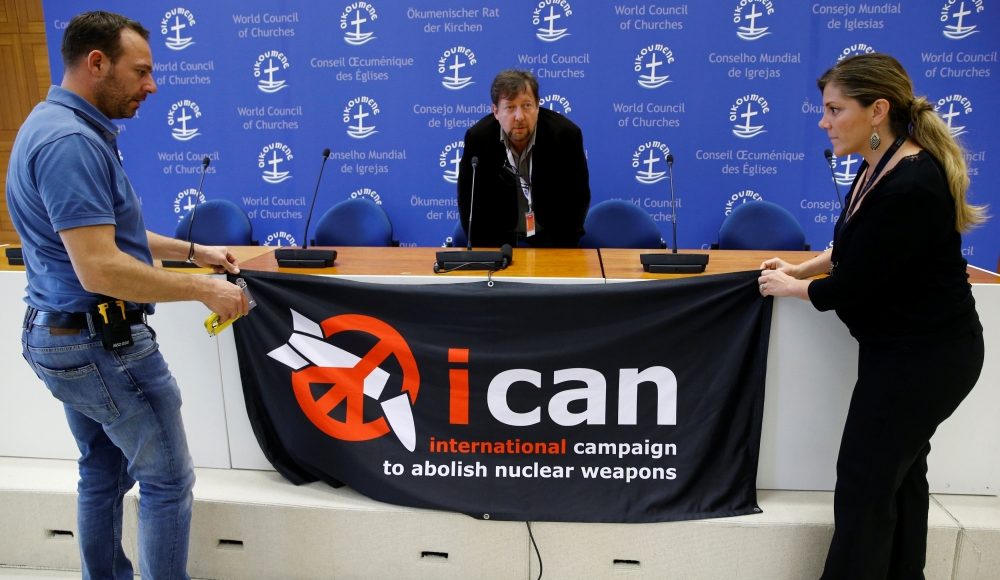OSLO/GENEVA (Reuters) – A campaign group seeking a global ban on nuclear arms won the Nobel Peace Prize on Friday, given the award by a Nobel Committee that cited the spread of weapons to North Korea and said the risk was growing of nuclear war.
The award to the International Campaign to Abolish Nuclear Weapons (ICAN) was unexpected, particularly in a year when the architects of the 2015 nuclear deal between world powers and Iran had been seen as favorites for achieving the sort of diplomatic breakthrough that has won the prize in the past.
Supporters described the award as a potential breakthrough for a global movement that has fought to ban nuclear arms from the day the first atomic bomb was dropped on the Japanese city of Hiroshima in August 1945.
ICAN’s Executive Director Beatrice Fihn told Reuters the group was elated. “This. Is. Surreal.” she later tweeted.
Asked if she had a message for North Korea’s Kim Jong-Un, who has tested nuclear arms in defiance of global pressure, and President Donald Trump, who has threatened to “totally destroy” North Korea to protect the United States and its allies, Fihn said both leaders need to know that the weapons are illegal.
“Nuclear weapons are illegal. Threatening to use nuclear weapons is illegal. Having nuclear weapons, possessing nuclear weapons, developing nuclear weapons, is illegal, and they need to stop,” she told Reuters.
Two days before her group won the prize, Fihn had tweeted that Trump was “a moron”. She told Reuters she had written this in jest, in the context of news reports that U.S. Secretary of State Rex Tillerson had used the same word to describe his boss. But she said Trump’s impulsive character illustrated the importance of banning nuclear arms for all countries.
“A man you can bait with a tweet seems to be taking irrational decisions very quickly and not listening to expertise, it just puts a spotlight on what do nuclear weapons really mean. There are no right hands for the wrong weapons,” she said.
ICAN describes itself as a coalition of grassroots non-government groups in more than 100 nations. It began in Australia and was officially launched in Vienna in 2007.
In her speech announcing the prize, Berit Reiss-Andersen, the leader of the Norwegian Nobel Committee, said the risk that nuclear weapons might be used was now “greater than it has been for a long time”.


